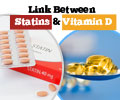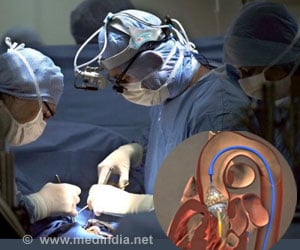Vitamin D deficiency in diet and not getting enough exposure to sun may put older adults at increased risk for poor physical performance and disability
Vitamin D deficiency in diet and not getting enough exposure to sun may put older adults at an increased risk for poor physical performance and disability, according to a new research.
"With a growing older population, we need to identify better ways to reduce the risk of disability," said lead author Denise Houston, Ph.D. "Our study showed a significant relationship between low vitamin D levels in older adults and poorer physical performance."About one-fourth of people over age 60 have low vitamin D levels. Previous research has shown that vitamin D not only plays a role in bone health, but possibly also in protecting against diabetes, cancer, colds and tuberculosis.
"Recent findings showing the importance of vitamin D status on multiple health outcomes underscore the need for more research on the effects of low vitamin D levels in elderly populations," said Houston, an instructor in internal medicine - gerontology.
Vitamin D is naturally produced when skin is exposed to the sun's ultraviolet rays. Foods such as fortified milk, juice and cereals also contain vitamin D, but it is difficult to get enough through diet alone, said Houston.
Older adults are particularly prone to low vitamin D levels because they may get less exposure to sunlight and because their skin is less efficient in producing vitamin D from sun exposure compared to younger adults. Older adults also may not get enough vitamin D from dietary sources.
"There is a growing awareness that the prevalence of low vitamin D levels is common among the elderly," said Houston.
Advertisement
Participants completed a short physical performance test of their walking speed, ability to stand from a chair and ability to maintain their balance in progressively more challenging positions. In addition, handgrip strength, a predictor of future disability, was measured using a hand-held dynamometer.
Advertisement
The study wasn't designed to evaluate whether low vitamin D levels actually cause poor physical performance, but the results suggest the need for additional research in this area, said Houston. She said vitamin D plays an important role in muscle function, so it is plausible that low levels of the vitamin could result in lower muscle strength and physical performance.
"But it's also possible that those with poor physical performance had less exposure to sunlight resulting in low vitamin D levels," she said.
Current recommendations call for people from age 50 to 69 to get 400 international units (IUs) of vitamin D per day and for those over age 70 to get 600 IUs. Many researchers, however, suggest that higher amounts may be needed.
"Higher amounts of vitamin D may be needed for the preservation of muscle strength and physical function as well as other conditions such as cancer prevention," said Houston. "The current recommendations are based primarily on vitamin D's effects on bone health."
Source-Eurekalert
SRM/V











